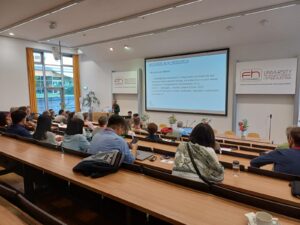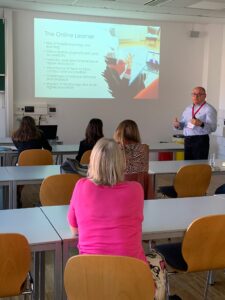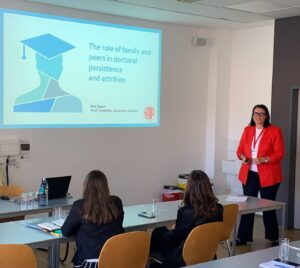The 45th annual conference of the European Higher Education Society (EAIR) is being held in the city of Linz and is hosted by the University of Applied Sciences Upper Austria. EAIR is a global association for higher education professionals, aiming to promote research and advancement in higher education research, policy, and practice to improve higher education. The theme of this year’s conference was Shaping the World of Change. Higher Education as a Key Enabler. Last year, MCAST hosted and organised EAIR’s 44th annual Conference in Malta.

Higher education institutions (HEIs) have traditionally been important actors in shaping change and transformation. Through knowledge generation and innovation, HEIs contribute to managing change in economic, social and environmental terms. Higher education systems, institutions and those working in HEIs assume a responsible role in managing our world of change. In addition, higher education research directs its focus on the observation, analysis and evaluation of these processes and derives from their insights and further recommendations for action.
HE research examines opportunities, challenges and potential for further development of the numerous service areas in the higher education system. The conference had seven key tracks in which participants could present their research. The tracks focused on: (i) Governance in Volatile Times, (ii) Sustainability and Higher Education, (iii) Transformations in Teaching and Learning, (iv) Revisiting the Student’s Role in HE, (v) Quality — A Stabilising Factor in a Changing World, (vi) Internationalisation of Higher Education and (vii) Designing Innovative Curricula. Participants contributed through papers, presentations, interactive sessions, and workshops.
The Principal and CEO Professor Calleja and the Director Strategy Edel Cassar presented research papers focused on students in HEIs, focusing on MCAST students and part-time doctoral researchers.

In his paper, Prof Calleja delved into the profiles of the M Generation at the College, highlighting six key challenges that the College must address, namely: the internet and the shifting dynamics of learning; and mobility, which is redefining learning pathways. The paper also tackles the proliferation and accessibility of refined knowledge and speed which is dominating immediate gratification and influencing learners’ expectations. Time and connectivity are crucial aspects of modern life HEIs and affluence are a defining factor in higher education pushing learners towards work-based learning as a means to address their quality of life. Such challenges were taken in the context of two overarching challenges at the College, namely retention and students’ engagement in College life. Structures to provide online learning (EdTech) and reforms in the duration and modes of learning were discussed as possible platforms for addressing students’ retention and engagement.

Edel Cassar delivered two presentations with preliminary findings arising from her Ph.D. research, under the supervisor of Dr Sue Vella at the Faculty of Social Wellbeing at the University of Malta. The research is supported through a TESS Scholarship from the Ministry for Education and the participation at the EAIR Forum was sponsored by MCAST. One of the presentations focused on the influence of different family members, peers, and colleagues on the decision of part-time Maltese doctoral students. The second presentation shared findings on the impact of career-related decisions on the progression or attrition of doctoral students.






 MCAST Main Campus
MCAST Main Campus  +356 2398 7100
+356 2398 7100
 information@mcast.edu.mt
information@mcast.edu.mt